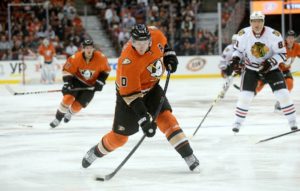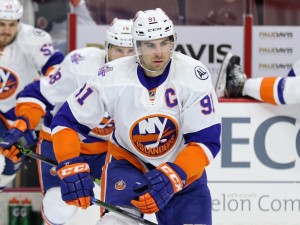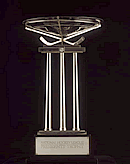One can hear it almost every day from now until season’s end. Coaches saying “there are two critical points on the line tonight.” But for those teams which have essentially clinched a playoff spot, it is not true. It is truthiness.
The term ‘truthiness’ was developed by Stephen Colbert. He premiered the term in 2005. The term has taken on a life of its own. Truthiness is preferring concepts or facts one wishes or believes to be true, rather than concepts or facts known to be true.

When we visited this subject last season, the premise was simple. As long as a team makes it into the Stanley Cup playoffs, their seeding is irrelevant to their chances at winning the Stanley Cup. We have another year’s worth of data and sure enough, the premise continues to hold up.
Once a team reaches 100 points (less in some situations), they have clinched a playoff spot. Trying to get a higher playoff seed provides no real value on the way to a Stanley Cup. Beyond 1o0 points, there are no more critical points to be had.
But this doesn’t stop people from engaging in truthiness.
Hockey Differs
The four major North American sports all use a playoff system to determine the champion. In each sport, the higher you finish, the higher seed you are given. A higher seed comes with benefits for the postseason. Be a top regular season team in the NFL or MLB and there is a very tangible reward. The top teams get to skip the wild card rounds.
The NBA and NHL formats are nearly identical. The same number of teams, 16, enter the playoffs. Each playoff round consists of two teams in a ‘best of seven’ series. Higher seeds play lower seeds and get home venue advantage for a Game 7.
Why Hockey Differs
These are very substantial advantages to being the higher seed in the NBA, but these are non-existent in the NHL. There are several reasons for this difference. Among them, the nature of injuries, the impact of the trade deadline and the ‘hot goalie’ factor.
Hockey also has more inherent randomness in the key element, goal scoring. One team can outskate another and even have the better goalie that night, but have four shots hit posts and still lose. Hockey happens and among closely matched teams, there will be random results, even over a series.

Another factor is the change in overtime rules, which means seeding might not reflect their actual play. As of Tuesday, the Anaheim Ducks and Calgary Flames were tied in the standings. But the Ducks are 5-10 after regulation ends, while the Flames are is 12-4 after regulation ends. During regulation, the Flames are 27-26-16 while Anaheim is 31-23-15. From their records, Calgary is far better at the gimmicks (3-on-3 and shootouts), while Anaheim is decidedly better at 5-on-5 hockey. In playoff overtimes, the regular season gimmicks go away and are replaced by 5-on-5 hockey.
Series Results
I look at three sets of numbers. The first set revolves around series results. Second will look at home ice for Game 7. Third, where the Cup winners finished in the standings and how close they were to the best team in the regular season, the Presidents’ Trophy winner.
Over the last five NHL playoff seasons, there have been 75 series played. Higher seeds have won 39 series, while 36 have been won by the lower seed. The winning percentage is slightly better than a coin toss, at 52%.
In the NBA, the 75 series covered in the same timeframe overwhelmingly favor the higher seeds. Higher NBA seeds hold a 55-20 record over lower seeds. The winning percentage is 73.3%.

In the NHL where the seeding differences were large (five or more spots, such as 2-seed versus a 7-seed), the record in playoff series only modestly favors the higher seed: 16-11 over the past five seasons. This is a winning percentage of 59%. While this is an advantage, it is hardly what one might expect given what should be a large discrepancy between the teams. Last season two of the four wild card teams won their opening round series.
In the NBA, teams seeded five or more spots higher than their opponent are dominant. Over the past five seasons, these higher seeds have won 95 percent of the series (a record of 19-1).
When the difference in seeding is less than five spots in the NHL, the higher seed has lost more series than they have won. The record is 23-25, for a winning percentage of 48%
Game 7
The second set of numbers revolve around Game 7. Home ice is the lone tangible advantage earned by being the higher seed. Coaches and players often say they want home ice for a Game 7. But is it an advantage?
This advantage is supported by the records in the NBA, but not in the NHL. Over the past five years, home teams in Game 7 in the NBA are 16-4 (80%). In the NHL, home teams are 16-18 (47%), a losing record. Home court for an NBA Game 7 is a very clear advantage while home ice for an NHL Game 7 is meaningless.
Presidents’ Trophy and Seeding
Another look at the correlation between points and playoff success comes from analyzing recent Presidents’ Trophy winners. The Presidents’ Trophy is awarded to the team which finishes with the highest regular season point total. We’ll compare their point totals to that of the teams that won the Stanley Cup.


Looking at full seasons (I prorated the 2013 shortened season to 116 points for this analysis), the average is about 116 points for the Presidents’ Trophy winner. The average Cup winner is at 104 points (counting 116 points for the prorated season). Notably, only one Cup winner actually topped 104 points in the last eight seasons!
The last eight Stanley Cup winners were seeded at almost every available spot: 1st, 2nd, 2nd, 3rd, 4th , 4th, 6th and 8th out of the eight seeded playoff teams in their conference. The most atypical of the seasons, the lockout-shortened season, was the only year where the Presidents’ Trophy winner also won the Stanley Cup.
Prepare For A Long Journey
The evidence is quite clear. Get into the Stanley Cup playoffs and a team can go as far as their ability can take them. This ability is not related to their playoff seed.
Once a team gets to about 100 points (or has effectively locked up a playoff spot), more points become essentially meaningless. There is no quantifiable benefit. It may fly in the face of truthiness, but a higher seed accomplishes nothing.
The only area we noted even a modest benefit was when a team faced another team five or more seeds lower. Even then, the winning percentage was only 59%. Advantages associated with higher seeding exist in other sports, but are essentially non-existent in the NHL. In each of the scenarios examined, the winning percentage of the higher seed was very close to 50%, in some cases even falling below this mark.

The seed of the eventual Stanley Cup champion has been almost random when looked at over the last eight seasons. It does tip slightly to higher seeds. The average seed of a Stanley Cup champion over the last eight seasons is 3.75. In the seven full seasons, the average winner’s seed is 4.14 (4.5 is the mid-point).
In terms of points, only one Cup winner team in the last eight seasons exceeded 104 points, the 2010 Blackhawks. Two teams won the Cup without reaching 100 points in a full season, Los Angeles in 2012 and Pittsburgh in 2009.
We’ve Clinched, Now What?
Once a playoff spot is clinched, it becomes entirely about preparing for the playoffs.
The best approach for a team which has clinched a playoff spot is not obvious. Some teams can give certain players rest, while letting injured players heal more than they otherwise might. Others teams may give younger players extended NHL ice time, so they are more ready if they are needed in the postseason.

Teams want to stay mentally sharp. Good habits and details matter.
There are specific parts of the game a coach can emphasize or experiment with. Areas such as special teams, face-offs and zone entries are places where a coach can make adjustments and see how they work. Areas such as 3-on-3 play or shootout practice can be completely eliminated from practices and game preparation.
Preparing for the playoffs is important. To optimize preparation, it helps to realize those “two critical points on the line” is just truthiness.